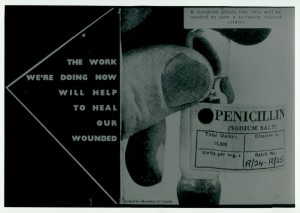The UK’s largest pharmaceutical company, GlaxoSmithKline (GSK), this week marks its 300th birthday.
In November 1715, Silvanus Bevan from Swansea established the Plough Court pharmacy in London, the family company that grew into Allen and Hanburys which, in turn, become part of GlaxoWellcome. GlaxoWellcome merged with SmithKline Beecham on 1 January 2001 to become GlaxoSmithKline.
From Silvanus and a couple of assistants in the back of the apothecary shop, GSK has grown to employ 100,000 people worldwide, some 15,000 of them working in the UK across six research and development centres, nine manufacturing sites and five offices – including GSK’s global headquarters in London.
GSK’s heritage has been shaped by hundreds of scientists and doctors, including five Nobel Laureates[iv], with links to a sixth who used his Nobel Prize winnings to set up a vaccines facility that is now operated by GSK.
Watch our video where GSK’s Heritage Archivist, Jill Moretto, grants us exclusive access to never seen before contents from the archive to see how the humble apothecary Plough Court has evolved into the UK’s largest pharmaceutical company, GSK, and we also hear from Graham Simpson, the seven times great nephew of the founder.
